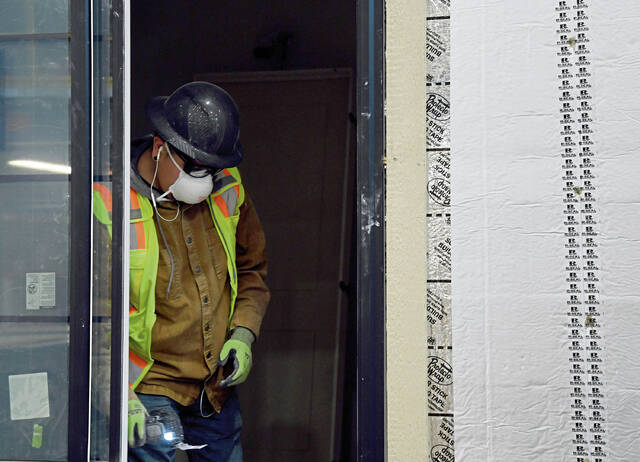Last May, Pittsburgh voters decided it was a time for change, giving state Rep. Ed Gainey a Democratic primary win over the incumbent mayor. With Tuesday’s general election, Gainey became the first Black mayor of Pittsburgh.
As the Gainey transition begins to unfold, Pittsburgh Community Reinvestment Group (PCRG), a coalition of community-based organizations and other nonprofit stakeholders, is excited about the opportunity to work with the incoming administration to tackle issues impacting Pittsburgh neighborhoods. These issues include increasing Black homeownership opportunities and city investments into neighborhoods by remediating blight, lifting small businesses and assisting registered community organizations (RCOs).
During the campaign, candidates talked about the need for more affordable housing, particularly for people of color and poor communities. According to 2020 census data, the City of Pittsburgh lost approximately 10,500 African American residents over the last decade — a 13.4% decrease in the city’s African American population. PCRG believes that the Gainey administration should work with City Council and double its annual funding to the Housing Opportunity Fund to create more housing units and provide more homeownership assistance.
Additionally, investment in an aging subsidized housing stock is necessary to increase the number of livable affordable units. While there could be federal funding opportunities made possible by the federal Build Back Better legislation, it is imperative that the city invest in affordable housing by creating its own funding streams and through partnerships with nonprofit affordable housing developers.
One of the biggest issues impacting PCRG members is the city’s divestment in neighborhood development. This has hamstrung communities in dealing with dilapidated housing, vacant land and neglected business districts. PCRG has advocated for a long time on promoting effective land recycling policies like an efficient and fully staffed Pittsburgh Land Bank (PLB). PCRG members are encouraged by the recent $10 million infusion to the PLB from the American Rescue Plan, but more investment is needed. We look forward to reviewing the PLB spending plan and helping to make sure properties (including city-owned) are moved efficiently through the land bank and back onto city tax rolls. Most importantly, ensuring an effective land bank that can stabilize neighborhoods through remediation, and not solely demolition, will be of critical value.
As neighborhood small businesses continue to recover from the covid-19 pandemic, economic opportunities for entrepreneurs in low- and moderate-income neighborhoods still need city support, and minority-owned businesses not designated for Urban Redevelopment Authority’s Avenues of Hope funds are seeking resources. PCRG urges the Gainey administration to increase funding for RCOs through the Department of City of Planning and programs like Neighborhood Economic Development (NED). These critical resources assist community organizations in creating neighborhood led zoning and planning initiatives, drafting of community benefit agreements to help level the playing field, funding for brick-and-mortar projects, and build much needed organizational capacity. According to some of our members, under the current NED process, funding has continued to decline, the application process has not been transparent, and funding decisions have been based on politics and not merit.
There are a lot of issues Gainey faces once he takes office. Our members stand ready to assist the transition team in making sure his historic administration will succeed, and Pittsburgh is the most livable city — for everyone.
Ernie Hogan is executive director of Pittsburgh Community Reinvestment Group, a nonprofit community development organization that advocates for economic justice, including equitable investment practices, responsible land use and access to reliable public transportation.








